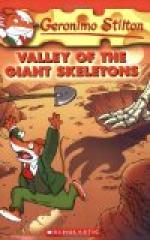“Tell me about him, Bryce.”
“Don’t have to. You’ve just told me about him, However, I’ll read you his letter. I claim there is more character in a letter than in a face.”
Here Bryce read aloud:
Golden Gate Hotel—Rooms fifty cents—and
up. San Francisco,
California, August fifteenth, 1916.
My dear cardigan: Hark to the voice of one crying in the wilderness; then picture to yourself the unlovely spectacle of a strong man crying.
Let us assume that you have duly considered. Now wind up your wrist and send me a rectangular piece of white, blue, green, or pink paper bearing in the lower right-hand corner, in your clear, bold chirography, the magic words “Bryce Cardigan”—with the little up-and-down hook and flourish which identifies your signature given in your serious moods and lends value to otherwise worthless paper. Five dollars would make me chirk up; ten would start a slight smile; twenty would put a beam in mine eye; fifty would cause me to utter shrill cries of unadulterated joys and a hundred would inspire me to actions like unto those of a whirling dervish.
I am so flat busted my arches make hollow sounds as I tread the hard pavements of a great city, seeking a job. Pausing on the brink of despair, that destiny which shapes our ends inspired me to think of old times and happier days and particularly of that pink-and-white midget of a girl who tended the soda-fountain just back of the railroad station at Princeton. You stole that damsel from me, and I never thanked you. Then I remembered you were a timber-king with a kind heart and that you lived somewhere in California; so I looked in the telephone book and found the address of the San Francisco office of the Cardigan Redwood Lumber Company. You have a mean man in charge there. I called on him, told him I was an old college pal of yours, and tried to borrow a dollar. He spurned me with contumely—so much of it, in fact, that I imagine you have a number of such friends. While he was abusing me, I stole from his desk the stamped envelope which bears to you these tidings of great woe; and while awaiting your reply, be advised that I subsist on the bitter cud of reflection, fresh air, and water, all of which, thank God, cost nothing.
My tale is soon told. When you knew me last, I was a prosperous young contractor. Alas! I put all my eggs in one basket and produced an omelet. Took a contract to build a railroad in Honduras. Honduras got to fighting with Nicaragua; the government I had done business with went out of business; and the Nicaraguan army recruited all my labourers and mounted them on my mules and horses, swiped all my grub, and told me to go home. I went. Why stay? Moreover, I had an incentive consisting of about an inch of bayonet—fortunately not applied in a vital spot—which accelerated rather than decreased my speed.
Hurry, my dear Cardigan. Tempest fidgets; remember Moriarity—which, if you still remember your Latin, means: “Time flies. Remember to-morrow!” I finished eating my overcoat the day before yesterday.




